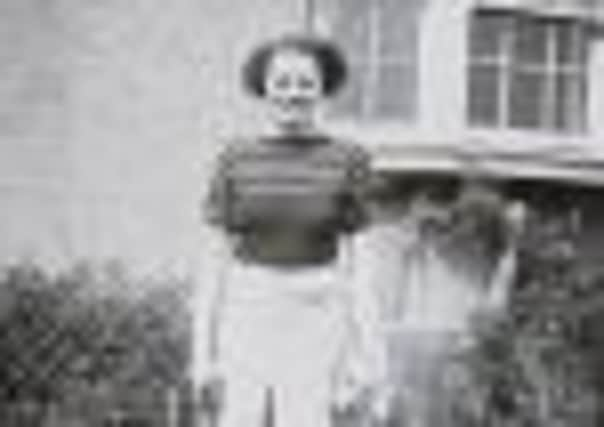Lizzie kept secret for 30 years


TO HER customers she was an unassuming sales assistant working in a radio shop in a quiet East Lothian market town.
But Lizzie Young had a secret – and one that she would not be allowed to divulge for decades.
Advertisement
Hide AdAdvertisement
Hide AdAt the outbreak of the Second World War she had been recruited by MI5 and asked to help her boss as he secretly monitored German radio signals in an upstairs room.
She dutifully ran the shop in Haddington while he listened to Morse code and deflected inquiries into his whereabouts, making sure nobody found out what was going on behind closed doors.
She even stayed tight-lipped as customers asked her why she wasn’t doing more for the war effort.
Now Mrs Tully-Jackson, as she became, has been posthumously honoured by the UK Government Communications Headquarters (GCHQ) in recognition of her work.
Advertisement
Hide AdAdvertisement
Hide AdThe application for official recognition was made by her husband Jack – but sadly he didn’t find out that it would be possible until after her death last February at the age of 93.
Mr Tully-Jackson 87, said his wife’s boss, William Amos, had trained as a radio operator at Leith Nautical College before the First World War, and was quickly identified by MI5 as a potential recruit.
He said: “His Morse reading was exceptionally good, very swift and he obviously had the ability to read very weak Morse.
“I don’t know how the authorities knew this, but when the Second World War broke out he was approached at home by a local senior policeman and two civilians, who turned out to be MI5 reps working out of Falkirk.
Advertisement
Hide AdAdvertisement
Hide Ad“They explained to him what they wanted but they wouldn’t speak to him in front of his family, they had to go up to the garden and speak to him up there, and his wife thought he’d committed some terrible act.”
Mr Amos ran Amos Radio and Electrical Supplies, based within his sister’s hotel In Market Street – now Gibson’s of Haddington.
He agreed to help, and was told he wouldn’t be able to operate without an assistant to cover for him – so he automatically suggested his helper in the shop, Lizzie.
The pair both had to sign the Official Secrets Act, meaning they would not be able to talk about their experiences for 30 years.
Advertisement
Hide AdAdvertisement
Hide AdMr Tully-Jackson said: “She had to take a lot of abuse in the shop – why wasn’t she away when she should have been in the services or on war work? She just had to bite her lip and said ‘Well, they haven’t sent for me yet’.”
The couple met late in 1943, when Mr Tully-Jackson was stationed at RAF Macmerry in the approach to D-Day.
He said that he “had inklings” over the years that his wife had been involved in some kind of secret work, but was never certain until after the 30 years had expired.
He said: “It just emerged gradually – she didn’t say ‘Sit down, I’m going to tell you something’.
Advertisement
Hide AdAdvertisement
Hide Ad“She talked quite openly about it after the 30 years were up.”
Mr Amos died before the 30 years expired, and so never spoke about his work, but in recent years Mr Tully-Jackson, a historian, contacted his son and grandson to find out more about him and gave a presentation at Bletchley Park, the National Codes Centre in Milton Keynes. After that, he discovered that staff who worked at Bletchley Park or did related work were entitled to formal recognition and wondered if his wife would be eligible.
He said: “I looked at the Bletchley Park website and discovered that they had made an award to people down there and I thought ‘Why can’t we get the same thing for Lizzie?’, but unfortunately it was a little after Lizzie passed away.
“I wrote to GCHQ and almost by return we got the award without any hassle at all.
Advertisement
Hide AdAdvertisement
Hide Ad“It’s a certificate signed by the Prime Minister and a lapel brooch that’s got a motif of a wheel of an Enigma machine.”
He said he thought his wife would have appreciated the recognition.
He said: “I’m very proud of her, and my family are too.
“I think she would have had a laugh at the whole thing, really – it took 70-something years.
“She would have enjoyed the craic.”